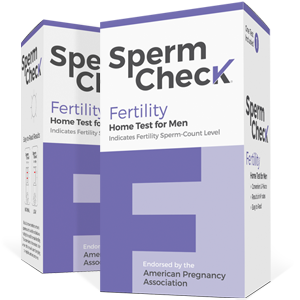
Thousands of men undergo vasectomy reversal procedures each year to try for a baby. But the reversal procedure itself is only one piece of the puzzle. In this article, we will break down the reversal process and success rate, potential roadblocks, and the average time to get pregnant after a vasectomy reversal.
How Does a Vasectomy Reversal Work?
The vasectomy reversal procedure involves reconnecting the vas deferens (the tubes that carry sperm from the testicles), which were previously cut during the vasectomy. The reversal procedure typically takes around three hours and is performed under general anesthesia.
What is the Vasectomy Reversal Success Rate?
Success rates for vasectomy reversals are typically measured by two metrics: pregnancy rate and patency rate. A pregnancy rate refers to the percentage of men that successfully have children post-vasectomy reversal. A patency rate refers to the percentage of procedures that restore unobstructed flow through the vas deferens tubes.
According to a 2018 study, the mean rates for patients following a reversal procedure over a 10-year span are as follows:
- Patency Rate 87%
- Pregnancy Rate 49%
Some providers are seeing even higher success rates due to advances in robot-assisted surgeries. These procedures are becoming more common as the technology needed to perform them becomes more accessible.
Understanding the Average Time to Conceive
While a vasectomy reversal can restore a man’s fertility, couples often wonder how long it takes to achieve a successful pregnancy following the procedure.
Some couples may achieve pregnancy relatively quickly, within a few months of the procedure, while for others, it may take longer. In some cases, despite the successful reversal of the vasectomy, pregnancy may not occur at all. Some of the common reasons are discussed below.
Typically, it’s advised to try to conceive naturally for at least six months to a year after the reversal surgery before exploring other options. Remember that fertility is a complex process, and while there are many things you can do to boost your odds, a couple’s fertility journey can be unpredictable.
Checking your sperm count with an at-home diagnostic test like SpermCheck Fertility may provide insight. If pregnancy doesn’t occur within a reasonable timeframe or if there are concerns about either female or male fertility, couples may also consider consulting with a fertility specialist.
Factors That May Influence Conception
The average time to achieve pregnancy after vasectomy reversal varies from couple to couple, as several factors can influence this timeline, including:
Surgical Factors
Factors such as the surgeon’s expertise, the technique used during the reversal, the time interval between a man’s initial vasectomy and his reversal surgery, and any complications during or after the surgery can all impact fertility outcomes. Additionally, the presence of scar tissue or other abnormalities in the vas deferens may hinder sperm flow, leading to a less-than-ideal fertility outcome.
Female Factors
The fertility and reproductive health of the female partner can play a significant role when trying to conceive after a vasectomy reversal. Factors such as age, ovarian reserve, overall health, and any underlying reproductive issues can impact the time it takes to get pregnant.
Male Factors
While vasectomy reversal aims to restore sperm flow, the quality and quantity of sperm post-reversal can vary significantly. Many metrics, such as sperm count, sperm motility, and sperm morphology, can influence the chances of conception.
In many cases, it can be extremely helpful for the male partner to undergo semen analysis testing to assess the overall health of his sperm and determine if natural conception is a viable path forward.
While the average time to get pregnant after a vasectomy reversal varies among couples, it’s essential to have a realistic mindset and understand the factors that influence fertility. Also, you may want to consult with a healthcare provider specializing in fertility, as they can provide you with a more personalized approach to achieving your family planning goals.
Struggling with infertility and need answers?
An at-home sperm test from SpermCheck can help you know your sperm levels and discover the best next step in your fertility journey. Order your SpermCheck Fertility test today.




